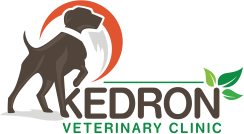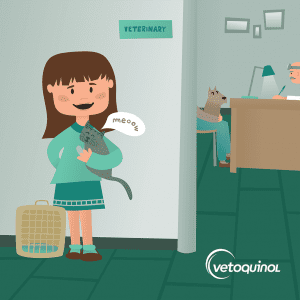Health Checks
Pets, on average, age five to eight times faster than humans. By age two, most pets have already reached adulthood. At age four, many are entering middle age. By age seven, many dogs, particularly larger breeds, are entering their senior years.
Because pets age so rapidly, major health changes can occur in a short amount of time. The risk of cancer, diabetes, obesity,arthritis, heart disease and other serious conditions all increase with age.
Today’s pets are living longer than ever, chances are that many may experience a potentially serious illness during their lifetime. Annual health checks can help your veterinarian diagnose, treat or even prevent problems before they become life-threatening.
They’re also a great opportunity to ask us about nutrition, behaviour or any other issues.
Call us today to book a health check for your pet with one of our vets.
HEALTH CHECK LIST
The most important annual health screenings for dogs and cats:
Adult dogs and cats (1-6 years)
- Vaccinations
- Parasite check
- Heart check
- Dental health
- Blood test
- Chemistry panel
- Urinalysis
Additional exams for senior dogs (7+ years)
- Osteoarthritis check
- Chest radiograph
- Thyroid check
Additional exams for senior cats (7+ years)
- Osteoarthritis check
- Renal disease screen
- Thyroid check
- Blood pressure check
HOW TO HELP PETS SCARED OF VET VISITS
By Dr Kate Mornement
Applied Animal Behaviourist
Pets Behaving Badly
Do you treat clients who are scared of vet visits? Despite many vets doing their best to ensure all pets have positive experiences during their visit, fear at the vet is a common problem. Treating these animals can be stressful and dangerous but it need not remain that way.
Why are some pets scared of the vet?
Pets become fearful of vets, and sometimes the clinic environment itself, because of past unpleasant experiences (e.g. experiencing pain or discomfort, hearing scary noises, being in an unfamiliar environment, being touched and handled when they didn’t want to be etc.) or because of a lack of past positive experiences and socialisation at the vet (a common scenario in some rescue animals). Sometimes, it’s a combination of both.
Most aggression in the clinic environment is fear based. When an animal is scared they’re in “fight, flight or freeze” mode. This is a survival mechanism which, when in danger, we experience as well. Some animals shut down and do nothing (freeze), some repeatedly try to get away (flight) and others will display aggression towards the vet or clinic staff (fight).
Sometimes even well socialised and cared for pets develop fear of the vet, especially after traumatic experiences (e.g. illnesses or accidents requiring emergency surgery) or following a number of vet visits over a relatively short timeframe where the pet doesn’t have enough time between visits to recover from the scary or unpleasant experience.
It’s important to remember that often what we consider routine treatment (i.e. vaccinations, dental work, checking temperature, desexing and even a physical exam) can be quite stress and anxiety provoking, even scary, for some pets. In addition, some pets are, by their nature, more sensitive than others.
How to reduce fear in pets scared of vet visits
There are a number of steps owners and clinic staff can take to help reduce fear and teach animals to associate vet visits with positive experiences. The most effective step is to desensitise and counter-condition scared pets to vet visits. This involves gradual exposure to the clinic environment, vet nurses and vet starting at a level the pet tolerates well. Counter-conditioning should occur simultaneously and involves pairing something the pet really, really loves (i.e. high value food/treats) with being near/in the clinic environment. This training should start in the car park and gradually progresses to inside the waiting room and then into the consult room over a series of training sessions if the pet is coping well. Treats should be given very frequently at first and slowly reduced as the pet becomes more comfortable over time.

